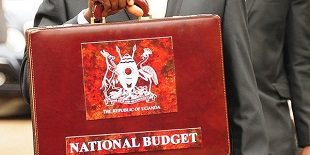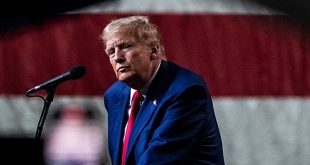‘Infrastructure President’
On Infrastructure, Museveni has performed fairly well according to some observers. He has built new hydro-electric power dams of a combined capacity of 400MW and is constructing two more of a combined capacity of 735MW. He has built numerous new schools and hospitals and refurbished old ones.
He has also constructed over 4000km of new tarmac road. One would think that this Infrastructure qualifies Museveni for the moniker of ‘Infrastructure President’.
Not so, says Sam Mutabazi, Executive Director of Uganda Road Sector Support Initiative (URSSI). “I would be surprised if there are people who call Museveni an “Infrastructure President” because he falls far short of this description. If we describe him as such, then what would we call leaders in Ethiopia that have virtually turned their entire country into a ‘construction site’?
“Infrastructure is very important to any country because it provides ready and meaningful employment and skills to the majority, especially the youth in a more sustainable way if well handled,” Mutabazi says. He wants Museveni, in the next term, to invest tenfold in infrastructure.
Mutabazi says the government must ensure that Karuma and Isimba hydropower dams do not go off track and that the government strengthens the country’s construction sector capacity to monitor and supervise large scale projects.
“Neither our local contractors nor our consulting engineers or architects have been accorded opportunity to grow and acquire confidence and skills to competently supervise projects of such size,” he says that needs to change. In an attempt to address such demands, the government has raised the budget for the next financial year to Shs26 trillion (Approx. US$ 8 billion) from the Shs21 billions of FY2015/16.
That is a 73% increase in the size of the budget in three Financial Years. It is an ambitious undertaking. Under this budget, Works and Transport will take Shs3.7 trillion or 19% of the budget, education Shs2 trillion (11%) and health Shs1.4 trillion (7%). In FY 2015/16, health got Shs1.3 trillion.
Observers say the new allocations show the claims of health and education provision becoming a priority are lip-service. The allocation to health is almost same as an item called `accountability’ – which could cover the fight against corruption – that takes Shs1.1 trillion. In the previous term, a number of graft scandals broke including; the pension scam and corruption scandal in the Office of the Prime Minister (OPM). Infuriated donors cut aid. Now donor agencies are threatening to completely cut taps if corruption goes unchecked in the next term. Sources in government say that the Financial Intelligence Authority (FIA) headed by former Director of Legal Affairs in the Inspectorate of Government (IGG), Sydney Asubo, is slated for an enormous budget boost to complement the efforts of the IGG in fighting corruption and related crimes.
Economy in free-fall
To meet the increasing revenue demands, the government plans to introduce new taxes and tighten old ones. East Africa’s richest man, Ugandan tycoon Sudhir Ruparelia, is unimpressed. He says Museveni and his government should be working harder on fixing the economy.
“The economy is in pretty bad shape,” he told The Independent in an interview, ““More than 45% of Kampala is on sale. People are looking for money and are parting with property; we need to make headway on this.”
Sudhir said he is always surprised to hear people at the Ministry of Finance painting a rosy picture of the economy and saying things are okay and are going to get better. He mentions the high interest rates as unacceptable. He says the government needs to spend more to spur consumer demand.
“Government has not released any money since October. The markets are not receiving any money at all,”
He cautions, however, that any increase money supply should be done in a non-inflationary manner. According to Sudhir, controlling inflation and bringing down interest rates should be an urgent priority.
Last year, Bank of Uganda (BOU) increased the Central Bank Rate about three times in a year and at one time it stood at 17.5%. Although, the rate was reduced in early April to 16%, BOU is still under pressure to further reduce to encourage borrowing and stimulate activity in the local economy.
Although pump oil prices have dropped recently, Sudhir says they need to go even further down to a level commensurate with the fall in international fuel prices because the pump price determines many other things including transporting food from the villages to the city. But oil pump prices look set to rise with the new budget as the taxes on imported oil products will be raised.
Dr Ezra Suruma, a former Minister for Finance and now Senior Presidential Advisor on the Economy, agrees with Sudhir on the needs to lower the cost of borrowing money.
“The government should make cost of credit lower so that the private sector can invest more,” he told The Independent.
Suruma says increased investment, especially in infrastructure, will lead to creation of badly needed jobs. He said tackling unemployment requires both public and private sector investment. He says the President’s plan to reduce poverty through Operation Wealth Creation is good but can only be a stop gap measure.
“There is a limit to how far government can go where markets operate, private sector operates best”.
Among major infrastructure ventures is the oil pipeline deal with Tanzania and the refinery. Other useful government interventions, according to Suruma, would be implementation of Museveni’s idea of recapitalising Uganda Development Bank (UDB).
“People need loans to do business,” Suruma says.
 The Independent Uganda: You get the Truth we Pay the Price
The Independent Uganda: You get the Truth we Pay the Price



What if these assumptions come pass and President Museveni navigates around them.
Do Ugandans have the requisite steel in the right quantities and quality to create presumed raffles.
What if the economy improved and corruption is dealt with
Do the 60% in the village care what we are talking about to contribute
All am asking and many other questions is what are the counter arguments.